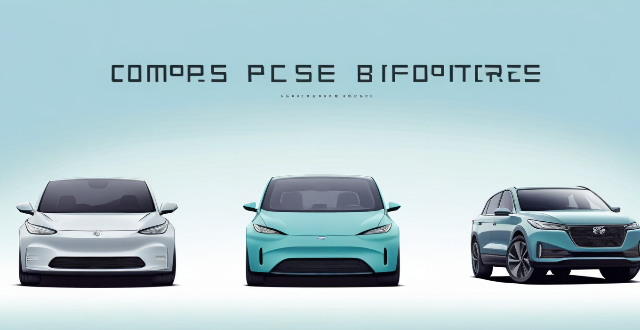The text compares the fuel efficiency of hybrid, electric, and gasoline cars. It defines each type of vehicle and discusses their respective fuel efficiencies. Gasoline cars have lower fuel efficiency compared to the other two types, while electric cars are the most efficient in terms of operating costs since they run solely on electricity. Hybrid cars offer a balance between fuel efficiency and range anxiety, making them a middle ground for those not yet ready to commit fully to electric vehicles. The text also touches on the environmental impact of each type of vehicle.

Comparison of Fuel Efficiency: Hybrid, Electric, and Gasoline Cars
Introduction
The quest for more fuel-efficient vehicles has led to the development of hybrid and electric cars as alternatives to traditional gasoline-powered cars. This comparison will delve into the fuel efficiency of these three types of vehicles to determine which is the most efficient.
Definitions
Before proceeding, let's define each type of vehicle:
- Gasoline Cars: Vehicles that run solely on internal combustion engines (ICE) powered by gasoline.
- Hybrid Cars: Vehicles that combine an internal combustion engine with an electric motor, using both gasoline and electricity as power sources.
- Electric Cars (EVs): Vehicles that are powered entirely by electricity stored in a battery pack.
Fuel Efficiency Comparison
Gasoline Cars
- Typically have lower fuel efficiency compared to hybrid and electric cars.
- Their efficiency is measured in miles per gallon (mpg).
Hybrid Cars
- Offer better fuel efficiency than gasoline cars due to the combination of ICE and electric motor.
- Can operate on electric power alone at low speeds or under light load, reducing gasoline consumption.
- Have regenerative braking systems that capture energy normally lost during braking and use it to charge the battery.
- Their efficiency is also measured in mpg but generally higher than gasoline cars.
Electric Cars (EVs)
- Are the most fuel-efficient in terms of operating costs since they run solely on electricity.
- Do not consume gasoline at all, thus eliminating the need for traditional refueling.
- Efficiency is measured in miles per kilowatt-hour (mpkWh), reflecting how far the vehicle can travel on a certain amount of electrical energy.
- The "fuel cost" for EVs depends on electricity rates, which can be cheaper than gasoline in many regions.
Environmental Impact
- Gasoline Cars: Produce tailpipe emissions that contribute to air pollution and climate change.
- Hybrid Cars: Produce fewer emissions than gasoline cars because they use less gasoline.
- Electric Cars (EVs): Produce no tailpipe emissions; however, the environmental impact depends on how the electricity used to charge them is generated. If the electricity comes from renewable sources, their impact is significantly lower than that of gasoline or hybrid cars.
Conclusion
In conclusion, both hybrid and electric cars offer superior fuel efficiency compared to traditional gasoline cars. Electric cars (EVs) are typically the most efficient in terms of operational costs and environmental impact, assuming the electricity used for charging is sourced from renewable energy. Hybrid cars strike a balance between fuel efficiency and range anxiety, offering a middle ground for those not yet ready to commit fully to electric vehicles.